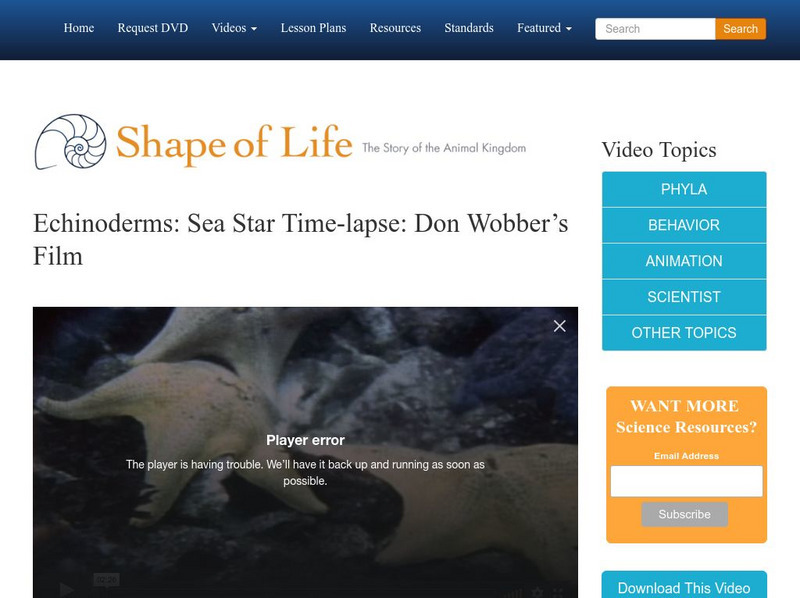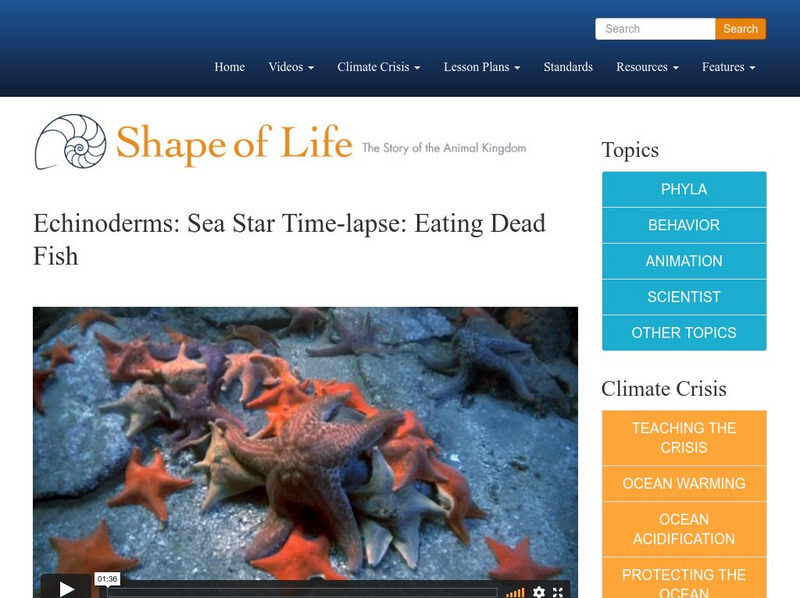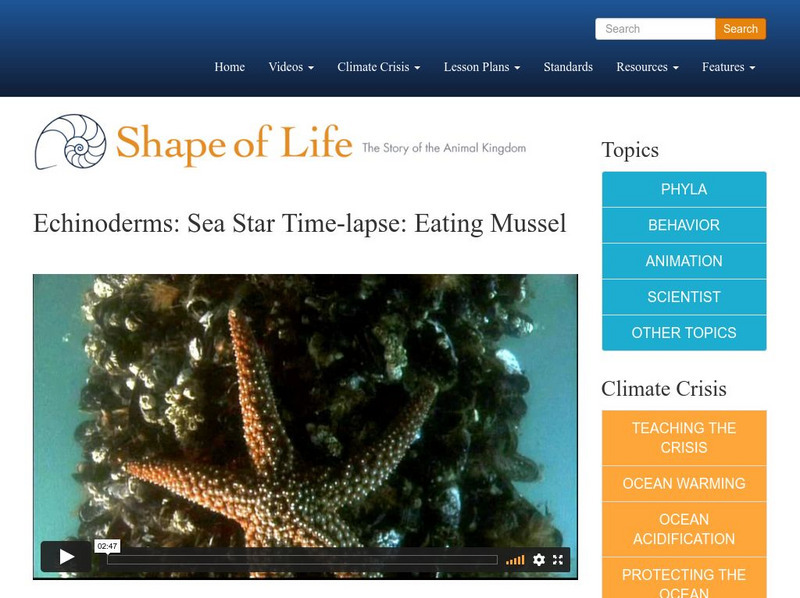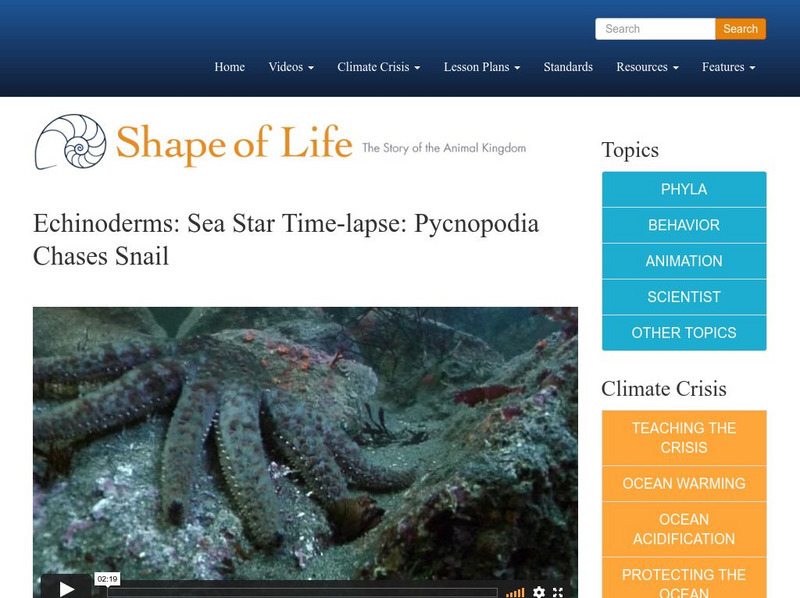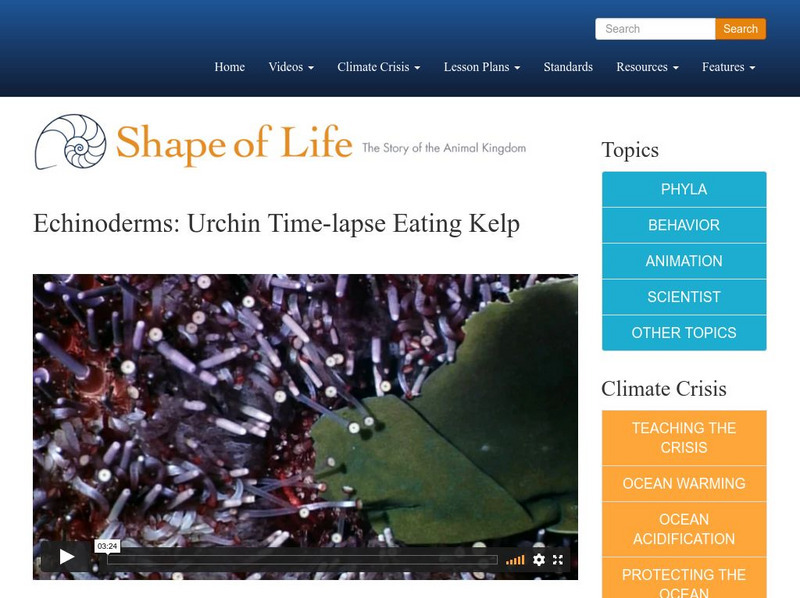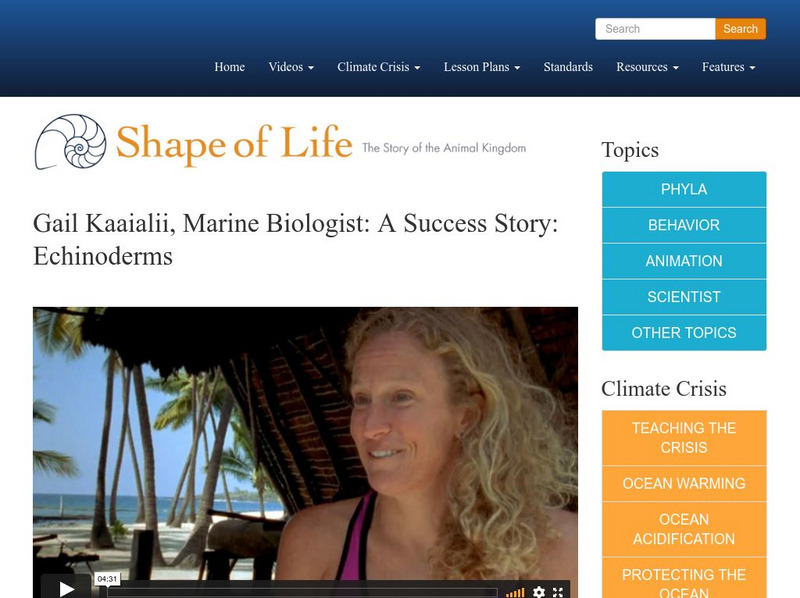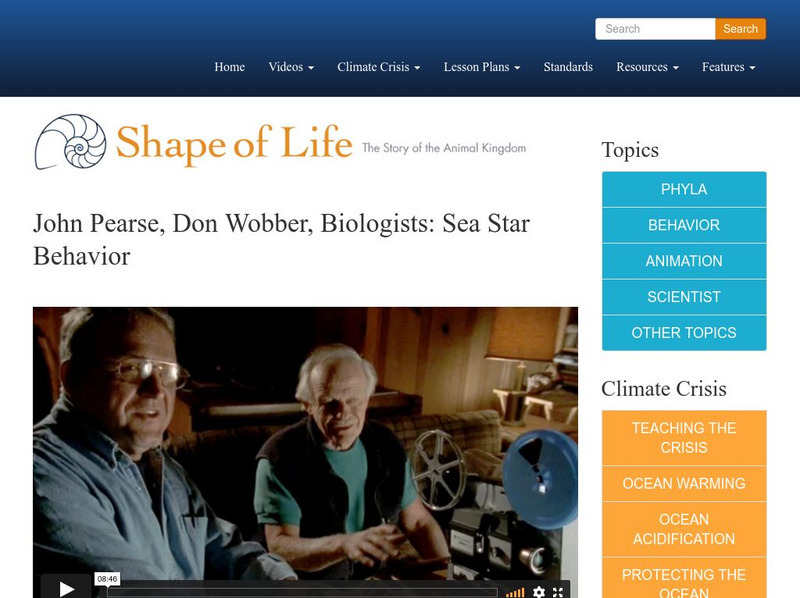SciShow
How These Animals Lost Their Heads (And Bodies, and Butts)
You'd think that there are some features that, once an animal group evolved to have them, could never really go away, right? Well, Stefan is joined today by hosts from PBS Eons, Journey To The Microcosmos, and Bizarre Beasts to break...
PBS
How the Starfish Got Its Arms
The story of how the starfish got its arms reminds us that even animals that might be familiar to us today can have incredibly deep histories - ones that stretch back almost half a billion years.
Curated Video
Sea Stars
An introduction to sea stars, including one that’s a metre wide! Biology - Animal Kingdom - Learning Points. Sea stars are a type of echinoderm. All adult echinoderms have radial symmetry, which means their body parts are arranged around...
Visual Learning Systems
Introduction to Echinoderms
This video provides a brief introduction to the characteristics and diversity of echinoderms, such as starfish, sea urchins, and sea cucumbers. This video is part of the 11-part series, Classifying Animals.
Ancient Lights Media
Biological Classification - Echinodermata & Arthropoda
Biological Classification Set: This clip introduces the phylum Echinodermata and the phylum Arthropoda.
Wonderscape
Science Kids: Exploring the World of Invertebrates
This video is a lesson on invertebrates, the largest group in the animal kingdom. It explains the two main groups of animals - vertebrates and invertebrates - and focuses on the characteristics and examples of invertebrates. The video...
Visual Learning Systems
Simple Animals: Understanding Echinoderms
Upon viewing the Simple Animals video series, students will be able to do the following: Differentiate between and provide examples of vertebrate and invertebrate animals. Describe the basic body parts of a sponge (porifera). Explain the...
Nature League
What Are Invertebrates? - Lesson Plan
Insects, and other invertebrates outnumber vertebrates—segmented-legs down! The first in a five-part series of videos from an Invertebrates series introduces these organisms in all their spineless glory. Each invertebrate phyla takes the...
Sea Studios Foundation
Shape of Life: Echinoderms: The Ultimate Animal
Echinoderms are slow animals radically different from us, but they are an evolutionary success. All echinoderms have five-part symmetry. We see the inner workings of sea stars, from their tube feet to their skeleton on this animation....
Sea Studios Foundation
Shape of Life: Echinoderms: Sea Star Time Lapse: Don Wobber's Film
A time-lapse movie shows that sea stars actively interact with each other. [2:26]
Sea Studios Foundation
Shape of Life: Echinoderms: Sea Star Time Lapse: Eating Dead Fish
Time-lapse footage shows how fast sea stars move onto a dead fish to eat it. [1:36]
Sea Studios Foundation
Shape of Life: Echinoderms: Sea Star Time Lapse: Eating Mussel
A tiny camera placed inside a mussel shows how a sea star slips its stomach inside the mussel to digest the mussel's flesh. [2:47]
Sea Studios Foundation
Shape of Life: Echinoderms: Sea Star Time Lapse: Pycnopodia Chases Snail
The sun star, Pcynopodia, chases and catches a snail in this video. [2:19]
Sea Studios Foundation
Shape of Life: Echinoderms: Urchin Time Lapse Eating Kelp
Want to learn more about how a sea urchin eats? Watch this video to see a sea urchins using their sensory tube feet to catch drifting kelp and carry it to its mouth on the underside. Also view how the sea urchin uses its five-part jaw to...
Sea Studios Foundation
Shape of Life: Gail Kaaialii, Marine Biologist: A Success Story: Echinoderms
Learn about the echinoderms through Gail Kaaialii. She dives with her students in Hawaii to observe these remarkable animals. She discusses how different these animals are from humans. [4:31]
Sea Studios Foundation
Shape of Life: John Pearse, Don Wobber, Biologists: Sea Star Behavior
John Pearse studied sea stars in the intertidal for a long time and assumed they had no social interactions. Then he met long-time diver Don Wobber who has a passion for sea stars. He wondered about the sea stars poses revealed in his...
Sea Studios Foundation
Shape of Life: Echinoderm Animation: Sea Star Body Plan
We learn how a sea star's skeleton works and then travel inside the sea star to see the nerve ring and how the hydraulic system of tube feet works. [3:52]



